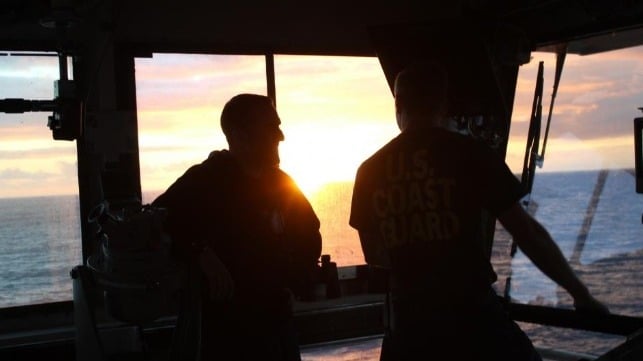Recorded numbers are “likely to be inaccurate and too low,” Ipsos study finds

The UK Department for Transport and the UK Maritime and Coastguard Agency (MCA) have released a new research study on seafarer wellbeing, and it suggests new avenues for improvement in providing care and understanding the scope of the challenges facing mariners today.
Mental health issues are still taboo and are poorly understood in many parts of the industry, “not just by employers but among seafarers themselves,” the study found. The solution could be to integrate mental-health support for seafarers more deeply into onboard life, and new a MCA app for assistance could help in breaking down barriers to access.
“There is – sadly – still a stigma around mental health. The fact seafarers still don’t feel able to talk about it or access services says a lot about how far we still have to go in terms of reducing that taboo,” said Katy Ware, the Director of UK Maritime Services. “This is exactly why we have launched our Wellbeing at Sea Tool. By identifying stressors and issues at an early stage, we hope that the tool will help to reduce stress among seafarers which is a contributory factor to mental health problems.”
In parallel with the tool’s development, MCA hired research firm Ipsos to conduct an interview-based study of seafarer wellbeing, and specifically about suicide. Ipsos’ team drew on the input of chaplains, seafarers’ charities, unions and other stakeholders over a series of 20 interviews in March and April.
The interviewees identified non-reporting as an obstacle to care. Many seafarers are reluctant to discuss mental health due to perceived taboos, especially in certain cultures. This reluctance has a financial aspect as well: The disclosure of mental health issues could affect employment, depending upon the policies of the specific employer.
“If someone wants to admit they have a mental health problem the [captain] would probably not allow that person to go to sea with them. So, again, they would then not be earning a living,” a chaplain explained to the researchers.
The resources available to seafarers include chaplains, union representatives, charities and (for some) employer-provided support benefits. However, access is uneven across the industry.
“I would say all of the majors, the big companies have some fantastic support in place. Conversely, you’ve got other companies where there’s nothing. They don’t talk about it,” one shipowner told the research team.
Reporting challenges
The participants agreed that seafarer suicide is a serious issue and that the industry can do more to address it. They described it as a damaging event for all, including the victim’s crewmates – who are often traumatized by the experience – and for the vessel operator (in terms of disruption and reputational harm).
A thorough understanding of the problem could benefit from better data. Suicide reporting is uneven, and the stakeholders agreed that any published numbers are “likely to be inaccurate and too low.”
They identified multiple barriers to accurate reporting. First, there are significant challenges for determining whether any given incident is a suicide – particularly if the seafarer is lost over the side. With little to no evidence, a definitive classification is often impossible.
Even if there are clear indications that the death is a suicide, the crew may not wish to accurately report it. Interviewees told the researchers that there is a widespread belief that a report of a “suicide” would prevent relatives from collecting life insurance, which would be a large financial loss. Whether or not this belief is accurate, “seafarers circle the wagons to make sure that the family’s looked after,” one manager explained. “Allow for suicide to be an insured risk and the data would clarify itself very quickly.”
Lastly, each company and flag state has its own approach to recording reports, and the interviewees agreed that some flags are more rigorous than others. “There are a lot of cowboy flag states out there that I’m concerned about . . . that don’t have robust reporting in place,” one shipowner said.
Source: https://maritime-executive.com/article/study-suicide-at-sea-is-likely-underreported